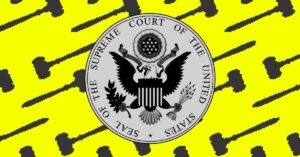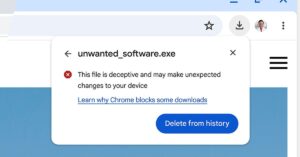/cdn.vox-cdn.com/uploads/chorus_asset/file/9472201/acastro__171016_1777_0001_v7.jpg)
The Federal Communications Commission has approved a new set of rules aiming to prevent “digital discrimination.” It means the agency can hold telecom companies accountable for digitally discriminating against customers — or giving certain communities poorer service (or none at all) based on income level, race, or religion.
The new rules come as part of the Biden Administration’s 2021 Bipartisan Infrastructure Law, which requires the FCC to develop and adopt anti-digital discrimination rules. “Many of the communities that lack adequate access to broadband today are the same areas that suffer from longstanding patterns of residential segregation and economic disadvantage,” FCC Chairwoman Jessica Rosenworcel said following today’s vote. “It shows that minority status and income correlate with broadband access.”
Under the new rules, the FCC can fine telecom companies for not providing equal connectivity to different communities “without adequate justification,” such as financial or technical challenges of building out service in a particular area. The rules are specifically designed to address correlations between household income, race, and internet speed.
Last year, a joint report from The Markup and the Associated Press found that AT&T, Verizon, and other internet service providers offer different speeds depending on the neighborhood in cities throughout the US. The report revealed neighborhoods with lower incomes and fewer white people get stuck with slower internet while still having to pay the same price as those with faster speeds. At the time, USTelecom, an organization that represents major telecom providers, blamed the higher price on having to maintain older equipment in certain communities.
The FCC was nearly divided on the new set of rules, as it passed with a 3-2 vote. Critics of the new policy argue the rules are an overextension of the FCC’s power. Jonathan Spalter, the CEO of USTelecom, says the FCC is “taking overly intrusive, unworkably vague, and ultimately harmful steps in the wrong direction.” Spalter adds the framework “is counter” to Congress’ goal of giving customers equal access to the internet.
“There is mounting evidence that low-income families and people of color are more likely to live in monopoly service areas that have just one high-speed internet provider,” Joshua Stager, the policy director of the nonpartisan organization Free Press, says in a statement. “This lack of competition can lead to lower-quality networks, poor service and higher prices. Congress was right to recognize these disparities when it gave the FCC the authority to enact today’s order.”
The FCC will also establish an “improved” customer portal, where the agency will field and review complaints about digital discrimination. It will take things like broadband deployment, network upgrades, and maintenance across communities into account when evaluating providers for potential rule violations, giving it the authority to hopefully finally address the disparities in internet access throughout the US.





